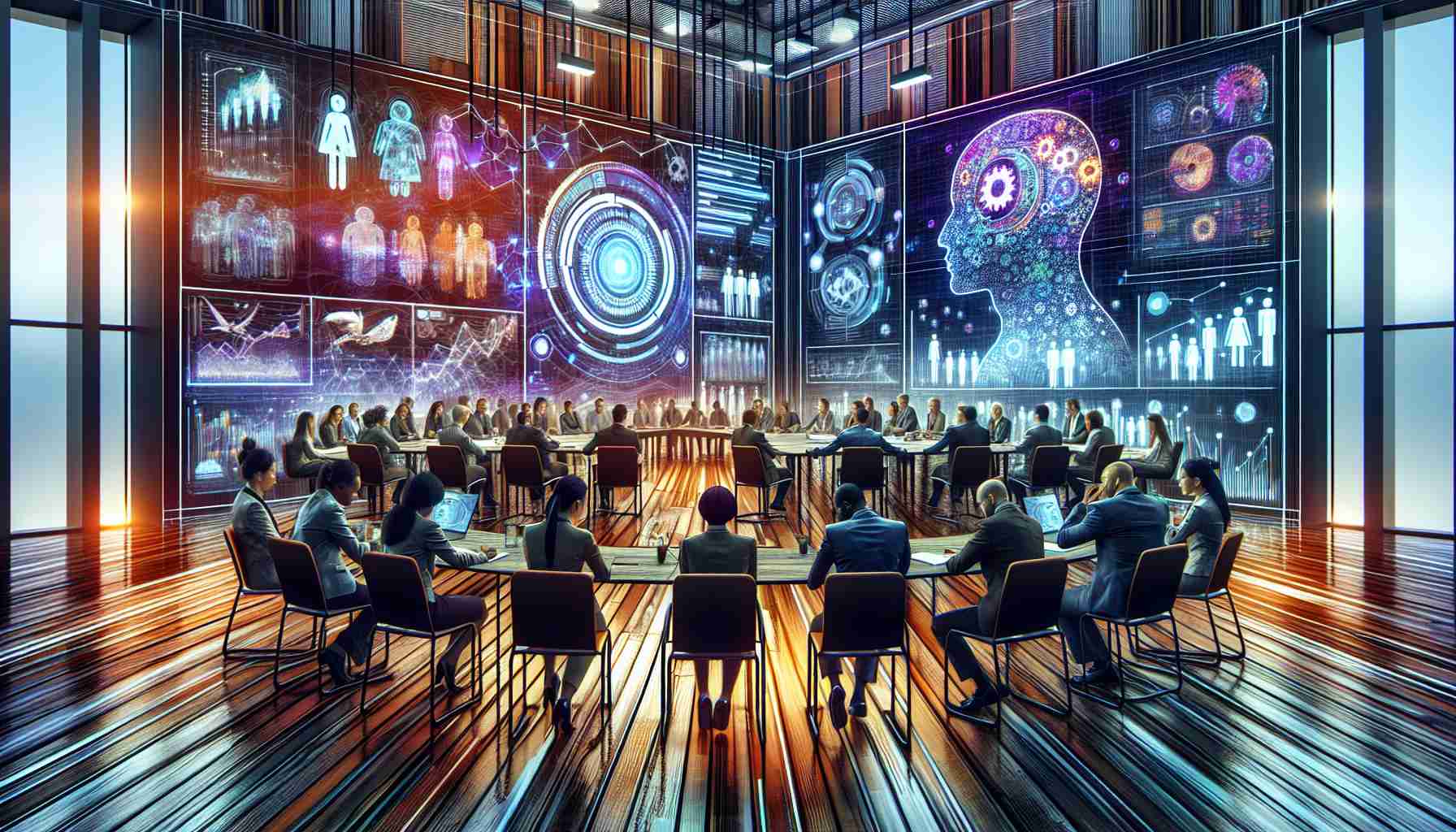Artificial Intelligence (AI) has taken center stage at this year’s South by Southwest conference, sparking a lively debate among attendees. While some express excitement about the potential for AI to revolutionize industries, others voice concerns about its impact on jobs and workers. The discourse highlights the need to address the opportunities and challenges presented by this rapidly advancing technology.
According to a recent global survey by Slack, 42% of office workers are optimistic about AI taking over some of their tasks, while 27% express concern. This divergence of opinions reflects the broader debate on whether AI will ultimately be a force for good or bad, particularly for workers.
IBM’s Chief Human Resources Officer, Nickle LaMoreaux, took the stage at SXSW to discuss AI’s potential to alleviate labor shortages caused by declining birth rates in developed economies. He emphasized that while automation may result in job changes, the majority of positions will not disappear completely. LaMoreaux urged companies and individuals to prepare for the evolving job landscape.
Meanwhile, reports of AI-related layoffs have fueled fears about job displacement. Klarna, a fintech firm, recently announced that its AI chatbot tool is already performing the work of 700 full-time customer-service agents. However, opinions on the impact of AI on job creation vary. Jim Link, Chief Human Resources Officer of the Society for Human Resource Management, cited conflicting research on the matter and stated that AI could potentially generate more jobs than it eliminates.
Despite the uncertainties surrounding future AI jobs, experts at the conference stressed the importance of investing in AI training. They believe that individuals with AI skills will have a competitive advantage in the job market. Donald Knight, Chief Human Resources Officer of Greenhouse, dismissed concerns about entry-level jobs being automated away, arguing that younger workers will be able to contribute more meaningfully and creatively with the aid of new technologies.
On the flip side, concerns have arisen in the entertainment industry, particularly regarding the use of AI by major TV and film studios. The contract negotiations between Hollywood writers and actors represented by SAG-AFTRA have been prolonged due to concerns about job security. While the final agreement includes protections against automation, some industry figures feel that they fall short of adequately addressing the issue.
Daniel Kwan, co-director of Everything Everywhere All at Once, delivered a thought-provoking keynote address on the subject. He acknowledged that AI is rapidly becoming an integral part of our lives, but raised concerns about the potential devaluation of certain job roles. Kwan urged caution, questioning whether the value of jobs will diminish, even if they are not eliminated altogether.
As AI continues to evolve and permeate various industries, it is crucial for policymakers, businesses, and individuals to navigate this paradigm shift thoughtfully. By embracing the opportunities and proactively preparing for the challenges, we can ensure a future where AI coexists harmoniously with the workforce.
FAQs
- What is AI?
- Will AI replace jobs?
- Should individuals invest in AI training?
- What are the concerns about AI in the entertainment industry?
- How can AI be integrated into the workforce harmoniously?
AI, or Artificial Intelligence, refers to the development of intelligent machines that can perform tasks that would typically require human intelligence.
While some jobs may be automated, the majority are expected to undergo significant changes rather than disappear completely. Studies have shown conflicting results regarding the impact of AI on job creation and elimination.
Experts believe that acquiring AI skills can enhance employability and provide a competitive advantage in the job market.
There are concerns among Hollywood writers and actors that the use of AI by major studios may threaten job security. While recent contracts have included provisions to address the issue, debates about the extent of protection continue.
By approaching AI implementation with thoughtful consideration, policymakers, businesses, and individuals can find ways to maximize the benefits while minimizing any adverse effects. Investing in AI training, adapting job roles, and fostering a culture of lifelong learning are some of the key strategies.
Sources: Bloomberg
FAQs
- What is AI?
- Will AI replace jobs?
- Should individuals invest in AI training?
- What are the concerns about AI in the entertainment industry?
- How can AI be integrated into the workforce harmoniously?
AI, or Artificial Intelligence, refers to the development of intelligent machines that can perform tasks that would typically require human intelligence.
While some jobs may be automated, the majority are expected to undergo significant changes rather than disappear completely. Studies have shown conflicting results regarding the impact of AI on job creation and elimination.
Experts believe that acquiring AI skills can enhance employability and provide a competitive advantage in the job market.
There are concerns among Hollywood writers and actors that the use of AI by major studios may threaten job security. While recent contracts have included provisions to address the issue, debates about the extent of protection continue.
By approaching AI implementation with thoughtful consideration, policymakers, businesses, and individuals can find ways to maximize the benefits while minimizing any adverse effects. Investing in AI training, adapting job roles, and fostering a culture of lifelong learning are some of the key strategies.
Sources: Bloomberg
The source of the article is from the blog yanoticias.es

